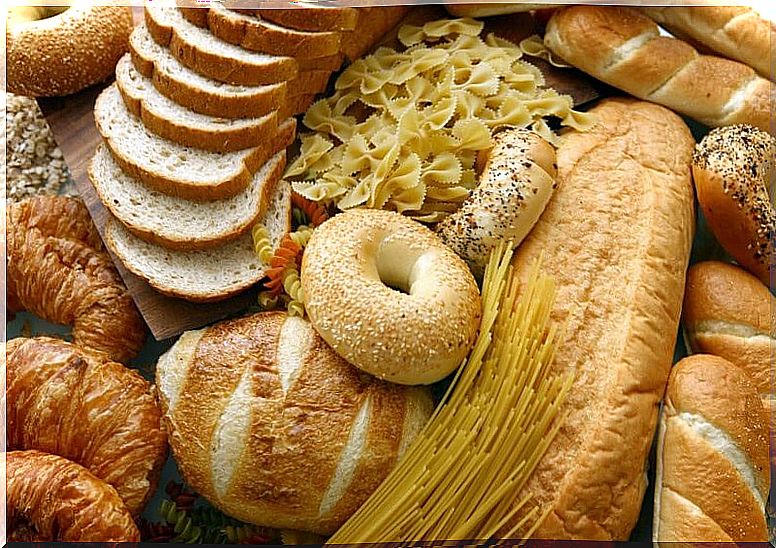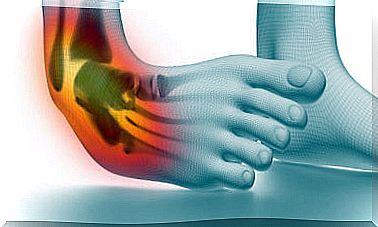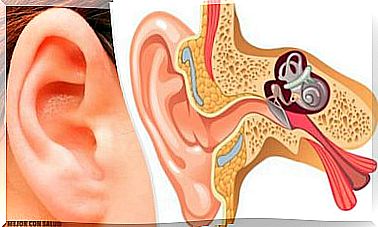Do You Really Get All The Fiber You Need?
Fiber is one of the essential nutrients when it comes to gut health. It has a close relationship with the diversity of the microbiota and with the prevention of complex diseases in the medium and long term.
In fact, adequate fiber intake can reduce the incidence of type 2 diabetes, as detailed in a study published in Nature Reviews Endocrinology . Likewise, the scientific literature associates its consumption with a greater feeling of satiety.
Therefore, its optimal consumption can reduce the constant snacking between meals and, in turn, the risk of obesity. Now, are you getting all the fiber you need? We invite you to discover it in the following space.
High fiber foods
Whole grains and fruits and vegetables are foods high in this nutrient. In fact, its consumption is highly recommended when we talk about intestinal pathologies.
However, nowadays the intake of products made from refined flours is frequent. During the processing of the grain, a large part of its fiber is lost and, therefore, of the beneficial properties of this product.
In addition, the intake of green juices or fruit smoothies also proliferates instead of the consumption of pieces of fruit as such. The fact of shredding vegetables can lead to a loss of fiber, which ends up affecting its nutritional value.
For this reason, the usual consumption of raw fruits and vegetables is recommended, between meals or with meals, for example, in recipes such as salads.
Fiber and constipation
Fiber is a very useful substance when we talk about improving intestinal transit. It allows to increase the size of the fecal bolus and stimulate its motility. Therefore, the consumption of whole grain cereals is recommended to all those who suffer from this ailment.
On the other hand, fiber often produces fermentations at the intestinal level. These give rise to changes in the microbiota that result in an improvement in the state of health. At present, the organisms of the intestinal flora are related to a multitude of organic processes.
In fact, these organisms are even linked to mental health and the risk of depression. In addition, they are associated with the absorption of nutrients and with diseases of the digestive tract, such as diarrhea, constipation and flatulence.
It is essential to reduce the consumption of processed foods
Ultra-processed foods, in addition to containing a number of simple sugars and high trans fats, are lacking in fiber. This diet high in sugar and fat can contribute to the appearance of unfavorable changes in the microbiota. Therefore, the risk of developing complex diseases could be increased in the medium and long term.
Although the consumption of carbohydrates may be necessary and positive for the proper functioning of the body, it is necessary to resort to fresh food. In this way, potatoes, brown rice, sweet potatoes, among others, can offer us a good amount of quality hydrates (low glycemic index) along with vitamins and fiber.
However, other foods, such as pasta or bread, are made from refined flours whose fiber and vitamin content almost disappears. These foods also cause a lack of control of the glucose curve and pancreatic stress due to their rapid absorption.

Recommended daily amount of fiber
The World Health Organization (WHO) recommends the consumption of between 25 and 30 grams of fiber per day. These needs may increase in people who suffer from an intestinal pathology or transit problems.
On some occasions, supplementation with prebiotics that help stimulate intestinal fermentations can also be considered. The latter in order to produce positive alterations of the microbiota. Of course, the regular consumption of yogurts and foods high in fiber are two safe values when we talk about health these days.
Are you getting enough fiber?
It is possible that, due to the high amount of processed products to which we are exposed, the fiber intake is lower than recommended. Therefore, the general recommendation is an increase in the intake of whole grains, fruits and vegetables to improve intestinal functions.
However, we emphasize the need to carry out a varied and balanced diet, containing all groups of nutrients. Regular exercise and water intake are other fundamental pillars when it comes to health.









